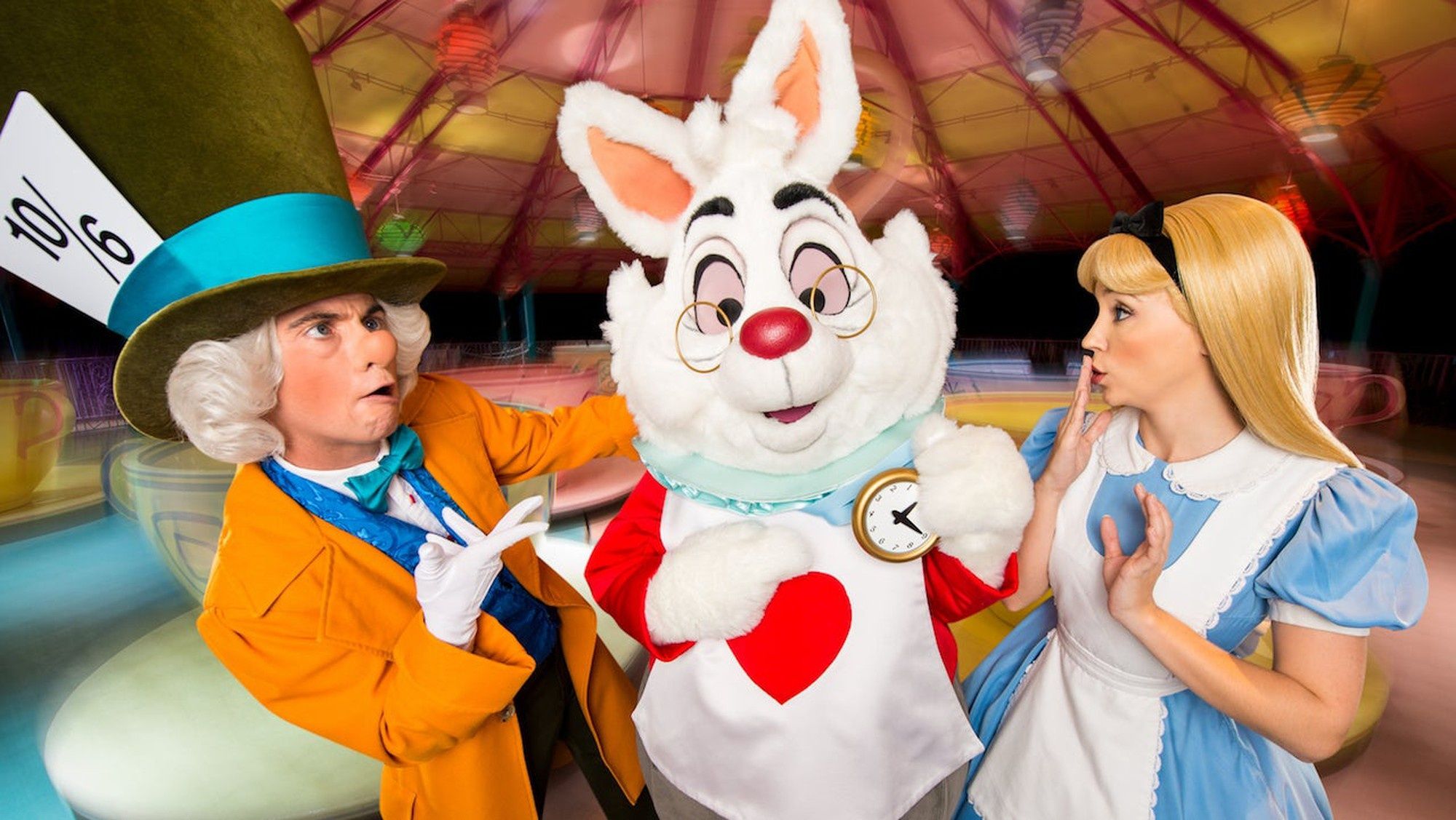I don't worry about Walt Disney (DIS +0.30%) too often. The House of Mouse has always been one of those stocks you can buy once, keep under your pillow, and sleep soundly for decades to come. When investing theory genius Aswath Damodaran needs an example of low-risk investments, he often turns to Disney first.
But 2020 brings a lot of unusual worries to the table. Market makers are clearly concerned about Disney's market value right now. Disney's stock has fallen 33% below February's all-time highs because of the COVID-19 crisis.
Is it time to sell Disney right now or should you expect the company to stabilize and bounce back? Let's have a look.

Image source: Getty Images.
The COVID-19 damage
The coronavirus triggered a plethora of rare problems for Disney:
- With theme parks around the world locked up, Disney turned off the spigot for 35% of last year's total revenues. Parks and experiences also generated 40% of the company's operating profits in 2019.
- Movie theaters are also dark, gutting the studio entertainment division that contributed 17% of Disney's 2019 sales and another 31% of total operating profits. Titles scheduled for premieres in the spring and early summer have been moved to later dates or skipped the silver screen entirely in favor of the Disney+ video-streaming platform. Disney has also paused the production of new movies, especially on the live-action side of things.
- The media networks segment is still running, but the sports channel ESPN has been reduced to showing reruns and electronic sports. Furthermore, many advertisers are conserving their cash at this difficult time.
- All of this is happening right on the heels of the $71 billion 21st Century Fox buyout. Thanks to that huge debt-backed transaction, Disney is nursing a long-term debt balance to $48 billion, more than double the $21 billion debt load the company held at the end of 2018.
This year will stick out like a sore thumb in Disney's corporate history. Revenues are shrinking, earnings and cash flows will crash and burn, and the stock most definitely needs to trade lower under these difficult circumstances.
Will Disney survive this ordeal?
Nobody is saying that Disney's long-term future is in danger.
Yes, the financial damage from coronavirus closures will grow over time. The longer the virus hangs around, the deeper the cuts in Disney's financial structure. But few companies can match Disney's ability to weather even a strong and extended storm.
Credit rating specialist Moody's agrees. When Disney issued $7 billion in new debt to tide over the coronavirus cash crunch, Moody's issued the same investment-grade A2 rating that Disney has held since the Fox deal closed, with a stable outlook for the foreseeable future.
"This transaction will help assure that Disney has significant liquidity to help carry it through this "black swan" cycle caused by the spread of COVID-19," Moody's wrote. Beyond the new debt papers, Disney also holds $12 billion of untapped revolving credit agreements, and the business is still generating some revenues during the shutdown.
When the world gets back to business again, Disney stands ready to launch several delayed blockbuster movies from the Pixar, Marvel, and Lucasfilm stables. Weary of social distancing practices, people of every social status will trickle back to Disney World and Disneyland. The company's legendary brand name alone is enough to ensure a quick return to normal operations, once we're armed with an effective vaccine and sufficient herd immunity.
Long story short, Disney's long-term trajectory remains impressive but its financial troubles are temporary. Smart investors can take advantage of the coronavirus era's generous buy-in discount to build a launching pad for many decades of market-beating growth.






